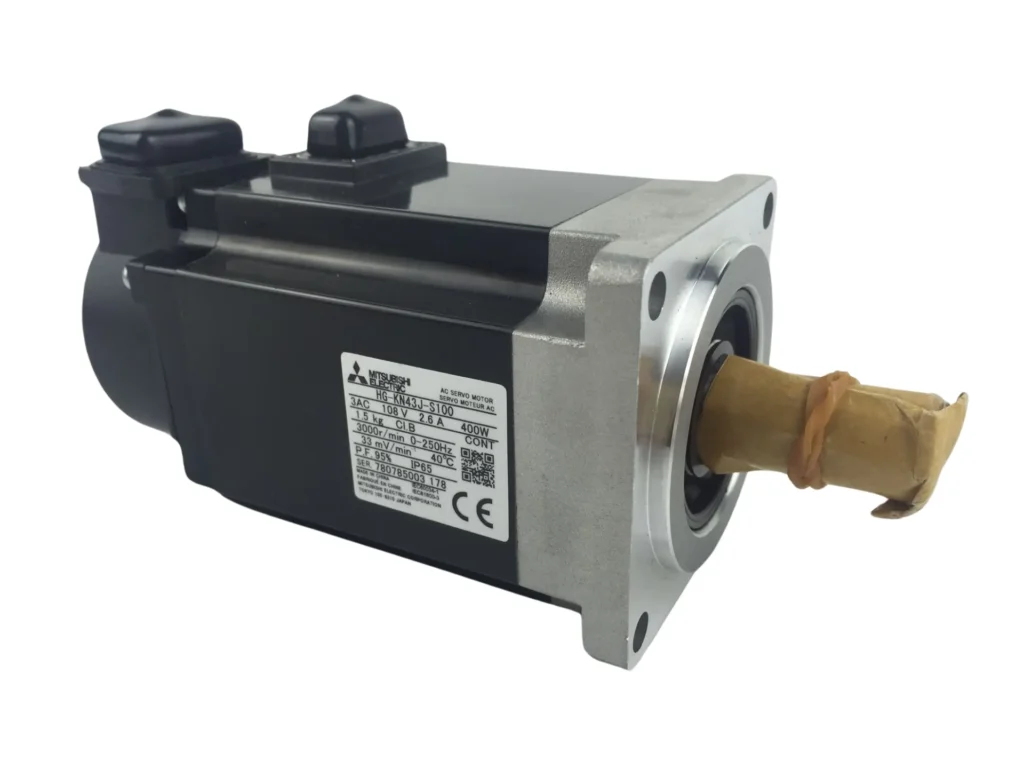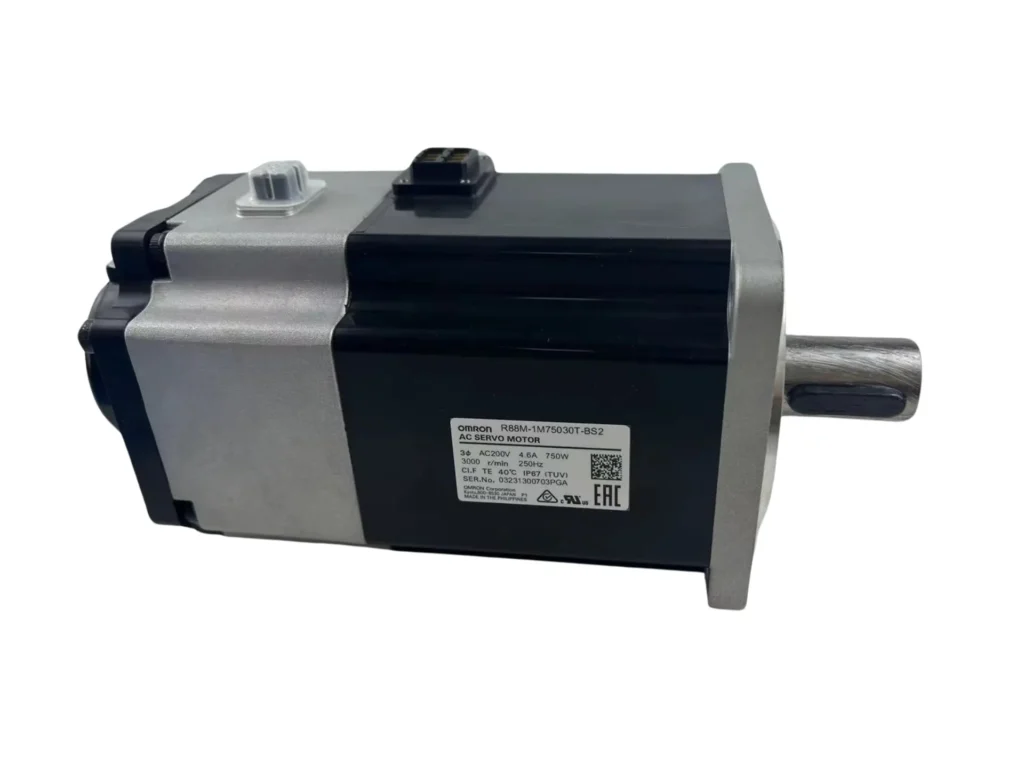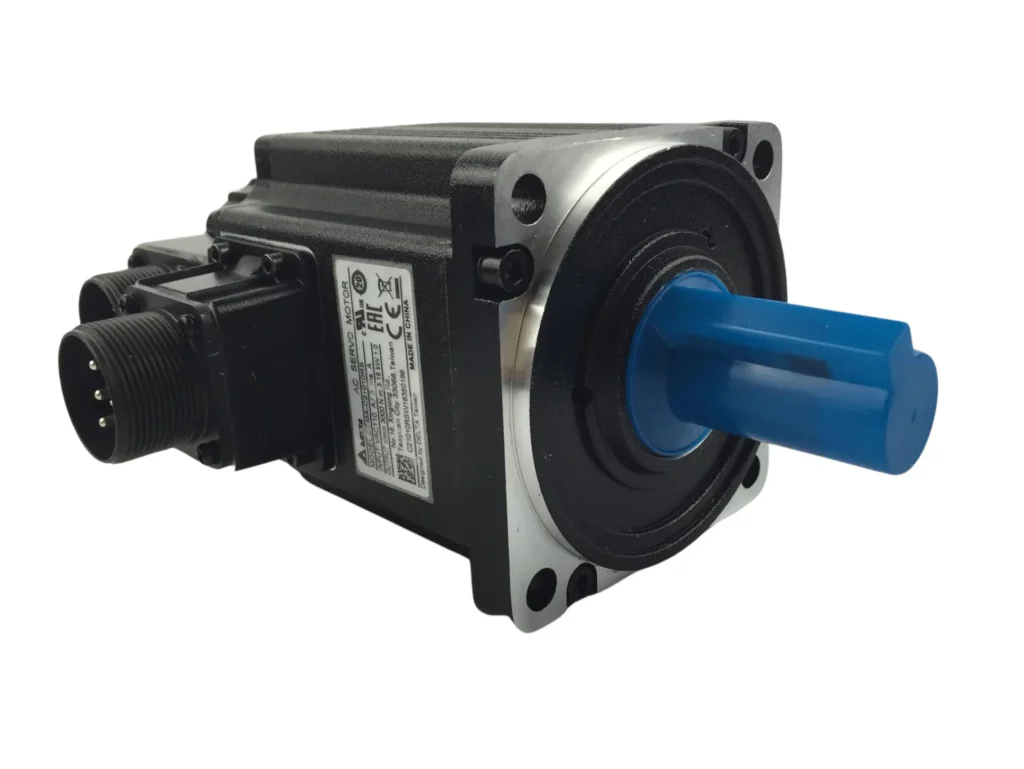What is a Servo Motor and How Does It Work?
- kwoco-plc.com
- September 3, 2024
- 7:21 pm
When it comes to precision and control in industrial automation, servo motors stand out as a key component. But what exactly is a servo motor, and how does it work? Let’s dive into this essential piece of technology that plays a critical role in everything from robotics to manufacturing.
A servo motor is a rotary actuator that enables precise control of angular position, velocity, and acceleration. Unlike regular motors, it can be controlled with high accuracy, making it ideal for applications that require meticulous movement.
Table of Contents
Servo motors are not just about movement; they’re about controlled movement. Whether it’s in a factory line or a robotic arm, the ability to control position, speed, and torque is vital. This precision is what sets servo motors apart from other motor types, such as stepper motors.
What are the main components of a servo motor?
To understand how a servo motor works, we need to look at its main components. A typical servo motor consists of:
- Motor: mainly composed of rotor, stator, winding and other components, including DC motor, AC motor, stepper motor, etc.
- Sensor: including position sensor, speed sensor, torque sensor, etc., used to detect the position, speed and torque of the motor, and feed back the detection data to the control system.
- Controller: composed of control chip, amplifier, encoder, etc., used to receive the parameters fed back by the sensor and control the position, speed, and torque of the motor.
- Power supply part: composed of transformer, rectifier, filter, etc., used to provide stable power supply voltage and current.
- Mechanical part: composed of reducer, coupling, transmission device, etc., used to convert the rotary motion output by the motor into linear or other specific motion forms
The motor receives a control signal, usually in the form of a pulse-width modulation (PWM) signal. This signal tells the motor where to move, and the position sensor confirms whether the motor has moved to the desired position. The feedback loop continues to ensure precise control.
How does a servo motor maintain accuracy?
The magic of a servo motor lies in its closed-loop system, where the position sensor constantly feeds back the actual position to the control circuit. This allows for real-time adjustments, ensuring the motor stays in the correct position.
For instance, if the load on the motor changes, the system can immediately adjust the torque to maintain the desired position. This level of control is crucial in industries where precision is paramount, such as CNC machines or robotics.
Servo motors can maintain this accuracy because they constantly compare the input signal with the current position. If there’s any discrepancy, the control circuit compensates by adjusting the motor’s position. This feedback loop is what makes servo motors indispensable in applications that require high precision.
Why choose a servo motor over other motors?
Given the high level of control and precision, servo motors are often preferred in applications where accuracy is non-negotiable. But they are also more expensive and complex than other motor types, so why choose a servo motor?
- Precision: Servo motors can be controlled with incredible accuracy, down to fractions of a degree.
- Speed: They can achieve high speeds while maintaining control, making them ideal for fast-moving applications.
- Torque: Servo motors offer high torque even at low speeds, which is essential for applications that require both power and precision.
These advantages make servo motors the go-to choice for complex tasks. However, this doesn’t mean they are the right choice for every application. Understanding the specific requirements of your project will help determine whether a servo motor is the best option.
How are servo motors used in different industries?
Servo motors are incredibly versatile and are used in a wide range of industries. In manufacturing, they are often found in CNC machines, where precision cutting is required. In robotics, servo motors allow for the precise movement of arms and joints, enabling robots to perform complex tasks.
In the automotive industry, servo motors are used in electronic steering and throttle systems, offering the driver better control and feedback. Additionally, servo motors are used in camera autofocus systems, ensuring sharp images by precisely controlling the lens position.
From small-scale applications like hobbyist robotics to large industrial machinery, servo motors offer the precision and control needed for a wide range of tasks. Their ability to maintain accuracy under varying loads and conditions makes them a valuable asset in any precision-driven industry.
What should you consider when choosing a servo motor?
When selecting a servo motor, several factors need to be considered to ensure it meets the specific needs of your application:
- Load: The motor must be able to handle the load without sacrificing performance.
- Speed: Consider the speed requirements of your application and choose a motor that can deliver.
- Environment: The operating environment, including temperature and humidity, can affect motor performance.
- Control System: Ensure your control system is compatible with the motor and can provide the necessary feedback.
Selecting the right servo motor involves more than just looking at specs. It requires an understanding of the application’s needs and how the motor will perform under real-world conditions. Consulting with an expert, like the engineers at Kwoco, can help guide you to the best choice.
Conclusion
Servo motors are a crucial component in many industries, offering unmatched precision and control. Whether you’re working on a complex manufacturing process or developing a high-performance robot, a servo motor can provide the reliability and accuracy you need. Understanding how they work and what factors to consider when choosing one can help you make the best decision for your application.
If you’re in the market for servo motors or need expert advice on your automation projects, feel free to reach out to us at Kwoco. With over 30 million products in stock, we’re ready to help you find the perfect solution.
Contact Us
Just fill out your name, email address, and a brief description of your inquiry in this form. We will contact you within 24 hours.

Why Your PLC Needs a Separate Power Supply
Why Your PLC Needs a Separate Power Supply Have you ever wondered why PLC systems often require a separate power

Why Your Business Needs a Variable Frequency Drive
Why Your Business Needs a Variable Frequency Drive When managing industrial operations, optimizing energy efficiency while maintaining performance is crucial.

Why Signal Isolation is Crucial for Omron PLCs?
Why Signal Isolation is Crucial for Omron PLCs? In the world of industrial automation, signal interference is a silent killer.



